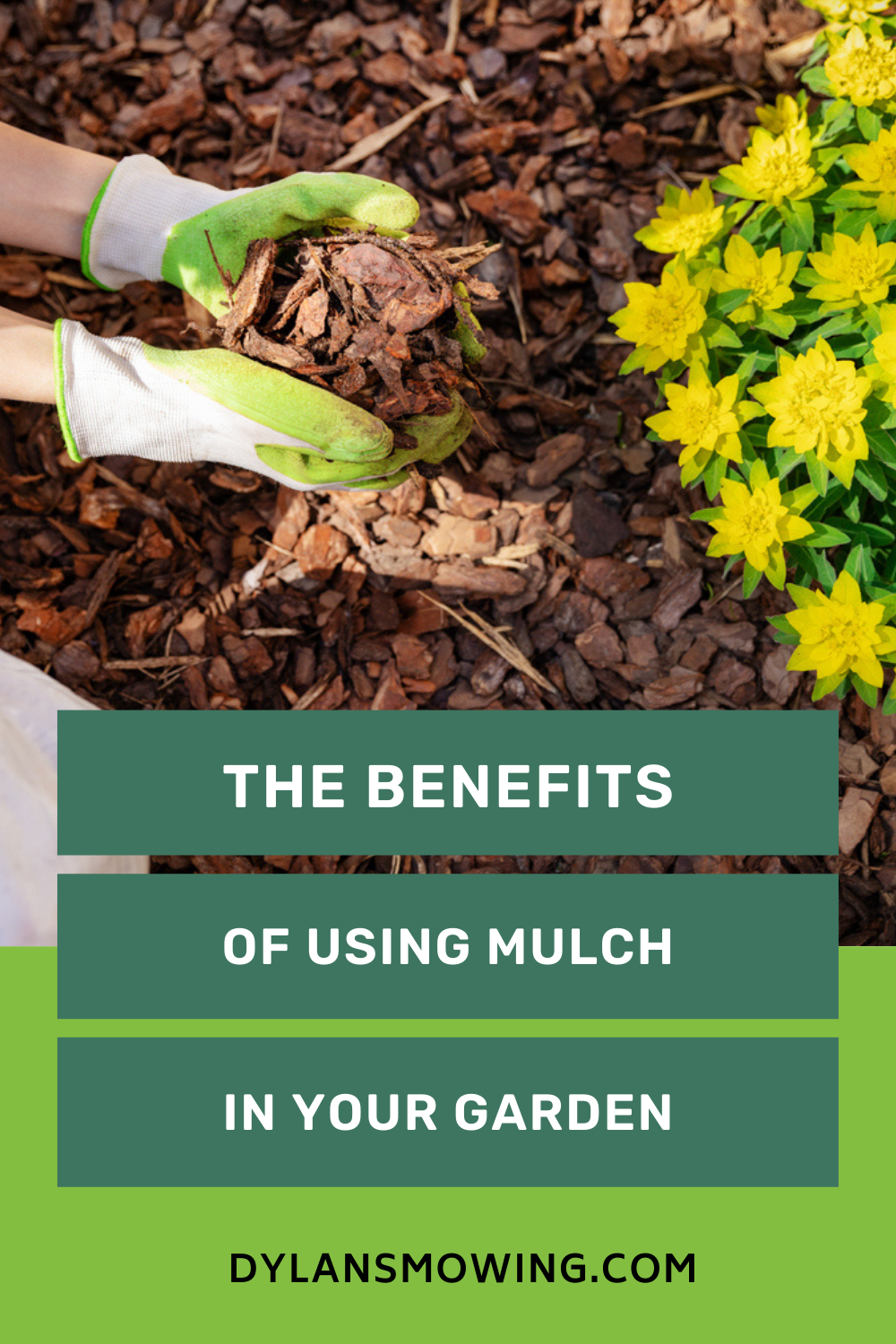Garden size ranges from small to large, and their purposes can be as simple or as elaborate as you wish. Flower gardens are quite popular because they add a sense of aesthetic beauty to any property. Vegetable gardens, which may be less attractive to some people but have become more popular in recent years due to increasing food prices, also have their own benefits: they require little to no care and produce abundant harvests. However, all gardens should use mulch, whether they are flower or vegetable.

What is mulch?
If you think of soil as a cake, the mulch is like the icing. Organic mulches are usually cheaper than inorganic ones, but they’re more likely to break down. There are numerous types of mulch: straw, hay, pine needles, newspaper, dried grass clippings, composted bark chips, cocoa shells, and shredded cedar.
Mulch is used to cover soil, especially around our plants, to protect and even supply important nutrients to ensure plants stay healthy. Mulch acts as a protective shield and helps keep moisture in the soil. It also helps to maintain a consistent soil temperature and will also stop valuable nutrients from washing away. It will also prevent those pesky weeds from popping up everywhere.
But you might wonder: what type of mulch do you need? Let’s dive into some different types of mulch and explore the benefits offers to your garden.
Is mulch organic?
Organic mulch can be made at home and can also be purchased. Knowing the type of mulch you need for your garden will help to maximise its effectiveness on your plants. Organic mulch types range from straw and wood chips, to even grass clippings and newspaper!
Choosing the right mulch for your veggie patch
Protecting your veggie gardens from all sorts of potential issues can be challenging. Garden beds can be decimated by weeds, lose, or even lack important nutrients, and soil temperatures can fluctuate and stress out roots. To help prevent these issues from occurring, we need to protect, insulate, and nourish the soil around seedlings and plants. Straw is an excellent choice of mulch for your vegetable garden. Straw decomposes much faster than some other mulches and will give your plants more of what they need to grow. Make sure to apply a thick layer of straw around your vegetables – around 5 – 10cm will help to keep moisture locked in the soil and prevent weeds from popping up. Straw mulch is essential through the hotter summer months.
Barking up the right tree (with mulch)
Bark and wood mulch is readily available in your local garden stores, or you can even make it at home with a woodchipper. This type of mulch is great to place around your plants and trees and will also help to retain moisture in the soil and keep those pesky weeds at bay. It can also be used as an attractive feature in your garden. Some wood mulches will even add valuable nutrients to your soil. Some wood mulch, such as cedar or cyprus, can help to repel bugs. When deciding on what type of wood mulch you need, keep in mind that some mulches might not be beneficial for your trees. An example of this is using pine mulch around your fruit trees. Pine mulch tends to be more acidic than other mulches, and some fruit trees won’t thrive in highly acidic soil. Artificially coloured or dyed wood chips can also be harmful when placing around your trees.
How inorganic mulch like pebbles and plastic can help your garden
Mulch can also be inorganic and can benefit your garden and plants in different ways. While it won’t provide nutrients like an organic mulch would, it can provide superior protection against moisture loss and weeds. Inorganic mulch won’t break down, giving your soil a much longer protection without having to reapply. It will also keep the soil warmer for longer, helping to promote good bacteria and extend the growth period of your plants. Black plastic and weed mats are best of weed control – make sure to bury under your soil as sunlight can break down the plastic over time. Make sure to punch some holes in the black plastic to ensure water can drain through. Pebbles and even gravel can be used around your plants and will give your garden that extra appeal.
Mulch is extra important during the hotter months, especially in hot Australian summers. Choose the right type of mulch for your garden and garden beds and keep your soil moist and healthy when rain isn’t as frequent. Maintaining a consistent temperature in your soil will help to promote healthy plants and trees. Don’t forget – mulch can be used as an eye-catching feature, so be creative!






